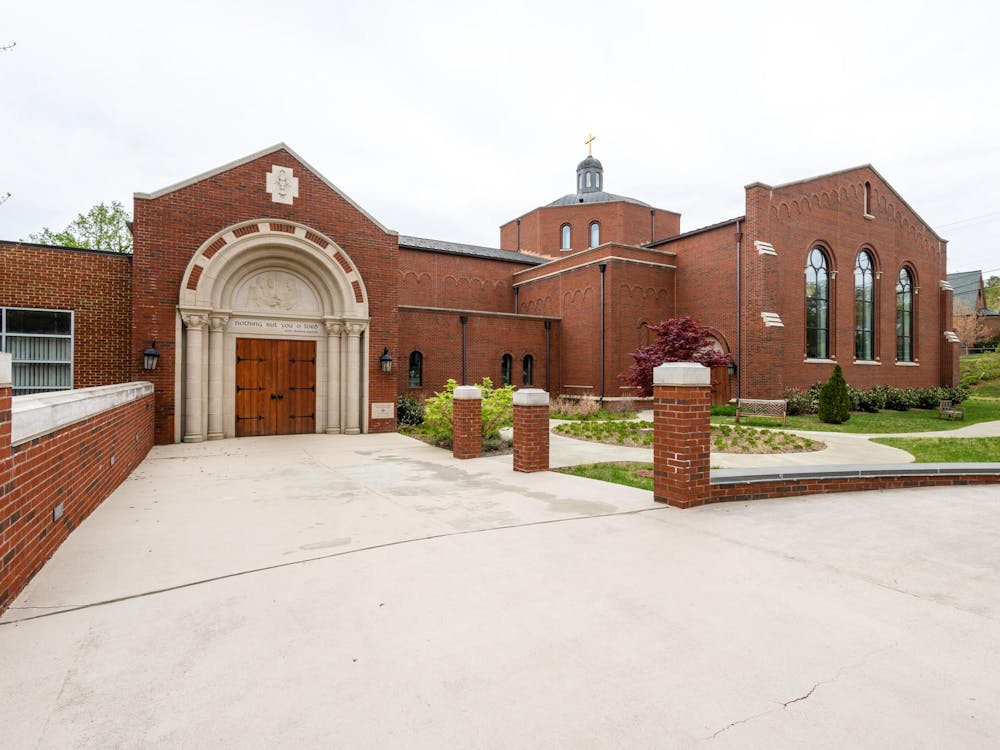Bright red Chinese flags adorned the Rotunda steps yesterday afternoon in a clash of pride and protest when Yang Jiechi, the Chinese ambassador to the United States, addressed an audience of students, faculty and community members.
The Dome Room was filled to capacity, and security officials were forced to turn people away at the door.
History Prof. Chen Jian said the event reflected a commitment to fostering relations between the University and China. He added that the University has a long tradition of good relations with China, dating back to 1977 when the University was the only American college to accept a visit from a Chinese delegation.
While Jiechi outlined the positive aspects of China in his speech, a couple of isolated audience members were unwilling to listen. According to Jian, there were two incidents of heckling during the speech.
"One person suddenly stood up and started shouting," Jian said. "Another tried to chain himself to a post."
Jian said he stood up and asked the hecklers to leave.
"Freedom of speech is important, but you also need to respect others," he said.
Jian added that afterward several students apologized to the ambassador for the disruptions.
"I was disappointed that a couple of people didn't want to wait for the question and answer period," said George Gilliam, director of special programs at the Miller Center of Public Affairs, which sponsored the event. "But students are supposed to be engaged. Ninety-nine percent of the students were orderly."
Gilliam also said the ambassador understood the importance of freedom of speech at the University, stemming from Thomas Jefferson's legacy.
"[Jiechi] was extremely good-humored about the two interruptions," Gilliam said.
Besides the disruptions in the Dome Room, a larger protest carried on outside on the Rotunda steps. While the ambassador emphasized the progress that the country of Tibet has undergone inside the building, a small group of members representing Students for a Free Tibet stood outside the Rotunda, protesting that the improvement was not enough.
The protesters waved Tibetan flags and signs depicting Tenzin Delek, a Tibetan political prisoner who currently is on death row.
Rich Felker, a spokesperson for the University's chapter of Students for a Free Tibet, could not be reached for comment yesterday.
Jiechi's speech emphasized the positive aspects of the relationship between the U.S. and China, focusing on the progress the two countries have made.
According to Chinese Student Association Secretary Lydia Xu, the key subjects in his speech included the Chinese economy, trade and education.
"The overarching theme was that the U.S. and China should improve relations to make the world more peaceful," Xu said.
Jian agreed, adding that the ambassador also expressed a desire for Chinese and American students to improve their personal relations.
"He told the Chinese students to be proud of being from China and asked the students to learn many good features from the Americans," Jian said.
Prior to the speech in the Rotunda, the ambassador had lunch with University President John T. Casteen, III to discuss the possibility of more student and faculty exchanges between the University and Chinese colleges. According to Jian, Casteen and Jiechi both professed a desire to increase the number of student and faculty exchanges in the future.






